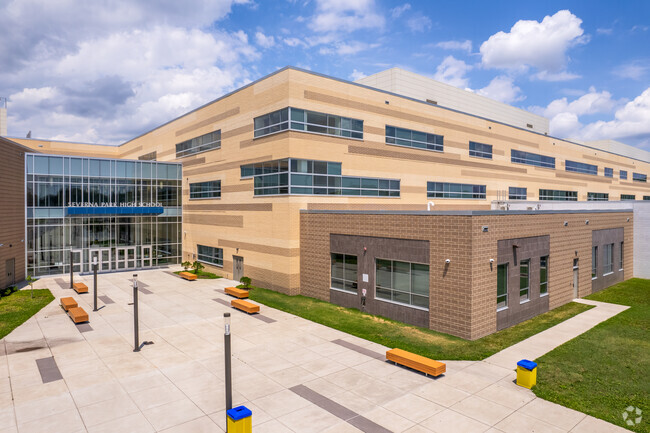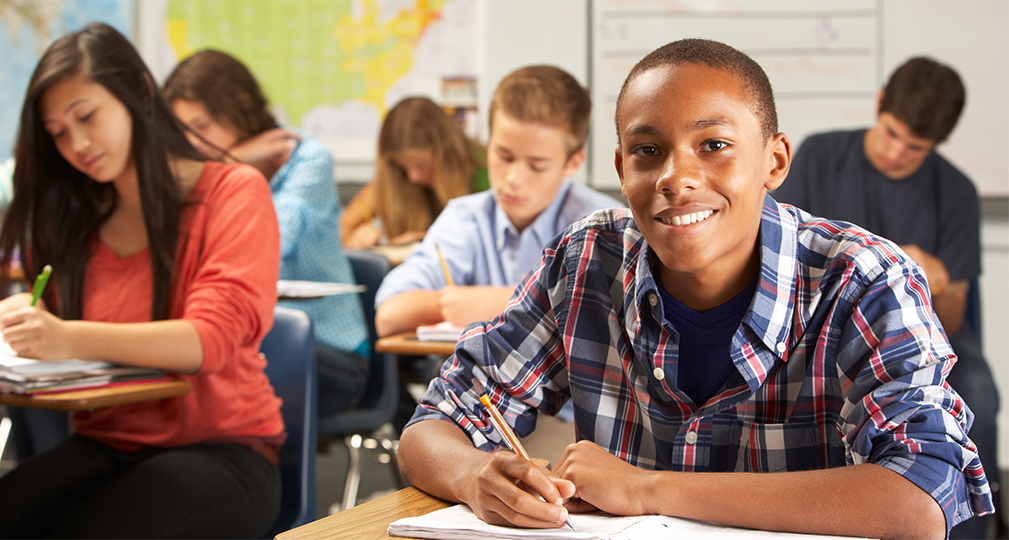Sign Up With Us: Occasions and Campaigns to Save Temecula Schools
Sign Up With Us: Occasions and Campaigns to Save Temecula Schools
Blog Article
Comprehending the Relevance of Institutions in Youngster Development and Area Growth
Colleges' involvement with local communities with service-learning campaigns strengthens the bond in between families and educational organizations. This cooperative connection highlights the significance of schools in nurturing active citizenship and long-lasting learning habits.
Academic Achievement
Academic achievement works as a foundation of kid growth, supplying the foundation upon which future learning and success are constructed. Colleges play an essential role in promoting this academic growth, offering structured environments where kids can obtain vital knowledge and cognitive skills. Standard educational program ensure that students gain proficiency in core subjects such as mathematics, science, and language arts, which are critical for both greater education and learning and expert possibilities.
Along with passing on basic scholastic abilities, colleges likewise grow vital reasoning, analytic capacities, and intellectual interest. These cognitive expertises are crucial for browsing complex real-world scenarios and adjusting to the ever-evolving needs of the contemporary workplace. Teachers, as facilitators of knowing, utilize varied pedagogical methods to deal with diverse knowing styles, thus optimizing specific pupil potential.
Furthermore, scholastic success is carefully connected to self-confidence and motivation. Children who experience scholastic achievements are more most likely to establish a favorable self-concept and a long-lasting interest for knowing. Colleges also supply different sources, such as collections and technology, which better boost the educational experience and prepare trainees for a technologically advanced culture.
Social Skill Development
Beyond academic accomplishment, the function of colleges in social ability advancement is indispensable. Schools function as a primary venue for children to find out and exercise vital social abilities such as communication, problem, and cooperation resolution. In the structured setting of a class, students connect with peers, teachers, and various other college staff, supplying countless possibilities to develop these important abilities.
Effective social skill advancement in institutions is assisted in via team tasks, collaborative tasks, and extracurricular programs. These interactions help trainees understand social standards, develop empathy, and promote a feeling of community. For example, team projects teach students just how to collaborate in the direction of a typical objective, pay attention to different perspectives, and navigate disputes constructively.

The cultivation of social abilities throughout school years lays a foundation for future individual and expert partnerships. Save Temecula Schools. As students mature, the capacity to properly communicate and team up becomes progressively essential, underscoring the college's essential function in alternative youngster growth
Direct Exposure to Variety
Exposure to diversity in schools is essential to promoting an inclusive way of thinking and expanding trainees' viewpoints. Schools act as a microcosm of the more comprehensive culture, and encountering diverse cultures, languages, and socioeconomic backgrounds within this atmosphere equips pupils with essential abilities for browsing an increasingly globalized globe. This exposure encourages empathy, lowers prejudices, and advertises shared respect among peers.
Varied classrooms additionally enhance cognitive and social growth. Research study indicates that students who engage with peers from diverse backgrounds display much better analytic skills and imagination. They discover to check these guys out appreciate different point of views, which enriches classroom conversations and fosters a more dynamic understanding experience. This understanding of variety prepares students for future work environments that value multicultural competence.

Neighborhood Involvement
The advantages of varied class expand beyond the college walls, cultivating a solid sense of community interaction amongst students. By connecting with peers from various cultural, socioeconomic, and ethnic histories, pupils obtain a wider point of view and an appreciation for variety. This exposure encourages them to come to be active people that are willing to contribute positively to their neighborhoods.
Schools that stress neighborhood engagement often incorporate service-learning tasks, which allow pupils to resolve real-world issues while applying academic abilities. These projects not just enhance pupils' understanding of their coursework however likewise infuse a feeling of obligation and compassion. Collaborations in between schools and neighborhood companies offer students with chances to participate in neighborhood events, even more strengthening their duty as aggressive area members - Save Temecula Schools.
In addition, adult and neighborhood participation in institutions strengthens the bond between universities and the communities they offer. When colleges open their doors to neighborhood occasions, workshops, and volunteer chances, they produce a collaborative setting that benefits all stakeholders. This common support system guarantees that pupils get alternative development, preparing them to end up being all-round individuals that value and add Find Out More to their areas. Via these initiatives, institutions play a crucial function in supporting area interaction and fostering social growth.
Lifelong Learning Behaviors
Establishing long-lasting discovering practices is important for a child's continual growth and adaptability in an ever-changing world. Colleges play a crucial duty in instilling these behaviors by creating an environment that cultivates interest, vital thinking, and a love for knowledge. With varied curricula and after-school activities, teachers encourage trainees to discover different subjects, examine info seriously, and use their finding out to real-world scenarios.

Furthermore, colleges provide a structured environment where kids can establish self-discipline and time administration skills, both of which are vital for continual discovering. By highlighting the significance of establishing goals, reviewing progress, and adapting techniques, schools prepare students to browse the intricacies of grown-up life, ensuring they stay long-lasting students and contributors to society.
Final Thought
To conclude, schools are necessary in cultivating kid development and neighborhood development by weblink supplying atmospheres favorable to academic achievement, social skill advancement, and direct exposure to diversity. Through collaborative tasks and interactions, institutions enhance critical thinking, empathy, and communication skills. Neighborhood involvement initiatives better strengthen the bond between local neighborhoods and instructional organizations. Inevitably, institutions grow long-lasting learning behaviors, gearing up people with the essential understanding and skills to contribute favorably to society.
In the structured atmosphere of a classroom, students communicate with peers, educators, and other college staff, supplying many chances to develop these crucial abilities.
In significance, direct exposure to variety within colleges not only enriches specific students yet also strengthens the social material of the neighborhood as a whole.
The benefits of diverse classrooms prolong beyond the school walls, fostering a strong sense of community engagement amongst students.Colleges that stress area interaction usually incorporate service-learning projects, which permit students to attend to real-world issues while using scholastic skills. Partnerships in between colleges and neighborhood companies provide trainees with opportunities to participate in community occasions, further strengthening their function as proactive community members.
Report this page